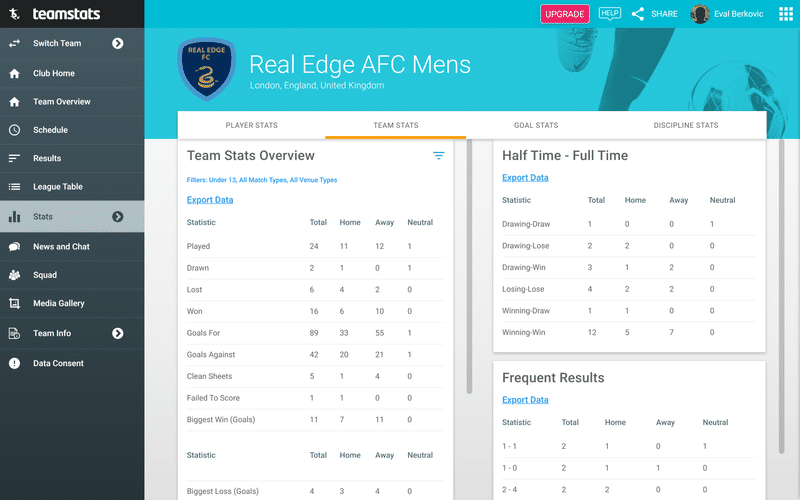Football betting has been a part of the UK’s sports culture for many years, and the rise of online betting platforms has significantly revolutionised this industry. Following this trend, the UK Government introduced GamStop in 2018 to protect at-risk individuals from gambling harm.
However, offshore non-GamStop betting sites at NonGamStopBetting.co.UK have increased in popularity across the UK because they are more lenient with regulations than UKGC-registered sites. They provide higher stake limits, faster payouts, and more appealing bonuses. But they’ve raised concerns over the years about responsible gambling in the UK.
In this write-up, we will discuss how self-exclusion is changing the football betting landscape in the UK to understand how GamStop is reshaping the betting culture.
How Self-Exclusion Works
In the UK, GamStop helps punters to voluntarily exclude themselves from online betting sites registered in Great Britain. The registration can last 6 months, 1 year, or 5 years, depending on your choice. It’s an online register, and all betting sites operating under the UK Gambling Commission (UKGC) licence must be registered with the GamStop self-exclusion scheme.
The self-exclusion scheme is part of the broader regulatory framework that controls unregulated gambling in the UK. It requires betting sites to check the age of players and if individuals have signed up for self-exclusion in the past before allowing them to play.
Impact on Punters' Behaviour
GamStop’s 2025 official report revealed that over 500,000 individuals have signed up for GamStop’s self-exclusion register. The case study conducted by GamStop revealed that GamStop has impacted their behaviour positively. 75% of the users said that GamStop helped them stop gambling online after the self-exclusion period. 48% of the users no longer gamble at all, with 75% saying they have more control over their gambling choices.
Some of the reasons for signing up for GamStop’s self-exclusion scheme include financial problems, mental health issues, and strained relationships with family and friends.
These statistics show that self-exclusion has played a huge role in reducing impulsive and potentially harmful gambling behaviour. It provides punters with a structured break to reflect on their habits.
How iGaming Operators Are Responding
As GamStop continues to prove its effectiveness, iGaming operators, on the other hand, are experiencing a decrease in betting activity. Of course, this translates to a decline in revenue – an issue they must address to sustain their business.
Many operators have started improving transparency by displaying their licenses and promoting responsible betting to show they care for their customers. Others have provided resources for at-risk players, such as children and those struggling with gambling addiction.
In addition, key industry players like GamCare and GambleAware work closely with iGaming operators and take part in educational initiatives with the aim of raising awareness and informing players how they can recognise and address potential gambling problems.
The Effectiveness of Self-Exclusion
Whilst self-exclusion has helped hundreds of thousands to manage their gambling behaviour, self-exclusion alone isn't enough. It needs to be combined with broader interventions, especially educating punters on responsible gambling.
You see, the exposure of gambling ads to children and young adults, particularly during high-profile matches, has been a concern for several years. Gambling brands have become some of the biggest sponsors of football clubs in the UK and European leagues.
Besides, non-GamStop betting sites allow punters to bypass the self-exclusion restrictions in the UK. This is why iGaming operators need to collaborate with relevant authorities to run awareness campaigns on the risks of using illegal sites and recommend safer, licensed platforms.
Other Self-exclusion Programs in the UK
GamStop only covers online betting sites. Other free self-exclusion schemes in the UK include:
-
MOSES (Multi Operator Self Exclusion Scheme) - It covers physical betting shops.
-
SENSE (Self Enrolment National Self Exclusion) - it covers all land-based casinos.
-
BISES (Bingo Industry Self-Exclusion Scheme) - It covers land-based bingo premises.
-
BACTA (British Amusement Catering Trades Association) - It covers Adult gaming centres, Motorway service areas, High street arcades, and Family entertainment centres.
-
SmartEXCLUSION - It covers High street bingo and Adult gaming centres.
Conclusion
The future of football betting regulation in the UK hinges on identifying risky gambling behaviours before they escalate, and self-exclusion schemes such as GamStop have given individuals the power to restrict their own access to betting.
Easy access to gambling, especially online, is among the leading causes of gambling addiction. In that case, there’s a need for additional effective self-exclusion mechanisms, including operators using technology to block access to betting sites and imposing financial limits. The goal is to make football betting in the UK a safer, more sustainable form of entertainment.


















